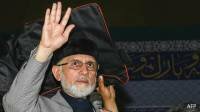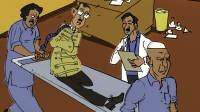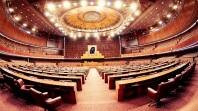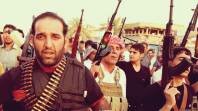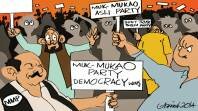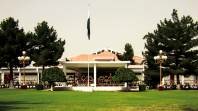When the PML-N came to power last year with a very strong mandate things were expected to be different. The outgoing PPP government had been much maligned for preferring political posturing over policy making, people wanted a change. Asif Ali Zardari they said, was a survivalist, not a leader. He didn’t wield the will of the majority, he didn’t even enjoy popular support among his own party, his only ambition was to pass five years of civilian governance to consolidate his position in the party, and his party’s position in the corridors of power in this country.
Nawaz Sharif, they said, was a different personality, coming from a very different position within his party. His party had also enjoyed a five year stint in the most populous province of the country, but without taking any of the flak for the energy crisis, law and order situation and economic volatility that the center had come in for. PML-N had an entire tenure to consolidate their post-martial law power base in Punjab, rekindling the old patronage relationships, reconciling with estranged party members, reshaping the civilian bureaucracy in their own image.
By the time the 2013 ballot was counted, it surprised no one to see the results. As many had already predicted, Nawaz was coming back to the federal capital for an unprecedented third time, he was coming as the undisputed leader of the strongest, most unified political party in the land, and he was coming in with scores to settle and promises to make good on.
Whether his governance proved good or bad, whether he had learnt any lessons from his previous tenures, people were convinced of one thing, that he wouldn’t stall, he wouldn’t be indecisive, he wouldn’t play the waiting game, he wouldn’t make the last move after seeing everyone else’s hand; he wouldn’t be a Zardari.
But what’s happened so far has been precisely the opposite.
The internal security situation in the country is more confusing than it was a year ago. Negotiations, said Nawaz, he pulled an APC to get everyone on the same page and show solidarity on the political front. But negotiations for what, people asked. These were criminals, murderers, law breakers, terrorists; it took half a year just to get them on the negotiating table, it took only a couple of months to realize it was a pointless endeavour. The bombs haven’t stopped, the killing hasn’t stopped, even the army operations haven’t stopped. The military is unhappy with catering to terrorist demands, and handing over prisoners of a violent insurgency.
Regional trade, said Nawaz, nobody was happier than the people in power across the border, the Indian National Congress. Having taken a beating from all possible angles, and watching the tremendous political rise of the BJP and Narendra Modi right under their noses, the Congress were desperate to show something for their time in power, to deliver something unique. An MFN status from Pakistan, big news for India’s big business, the FTA was signed, the groundwork had been laid by the PPP government and Hina Rabbani Khar, Nawaz just had to convince the security establishment and local industries concerned about protecting their profits.
He couldn’t.
The trial of Musharraf, perhaps the single biggest chip on Nawaz’s shoulder, has shared a similar fate. Conflicting messages, confusing statements, stalling, backtracking, posturing; the ex-president and army chief sometimes feels too threatened to appear in court, sometimes he’s too ill to stay in the country, new rumours about his fate emerge every day and not decisive words come from the PM house to squash them.
The same uncertainty can be found in Nawaz’s larger economic policies. No energy solutions, no improvement in tax revenues, no reduction in borrowing. The new budget arrives with little delivered from the last one.
Perhaps in any other country, all of this wouldn’t necessarily become a death knell ringing loudly before the election dust has even settled. Perhaps the government’s performance would be framed in a five year perspective, perhaps their immediate disappointments wouldn’t define their tenure. But this is Pakistan, as Zardari showed time and again, you don’t get time here, you fight for it.
The cogs are already in motion. The parties sitting in opposition in the center are getting more boisterous and are largely saying the same things. Two rallies have already reached the constitution avenue in Islamabad. Dissent is flying in from Karachi. PML-Q is mobilizing its political forces in central Punjab. Faisalabad too was overrun with PTI workers, voters and sympathizers in the last week of May. This is the district of business communities very loyal to Nawaz.
Experts have started musing that the glue that is sticking these disparate opposition elements together seems to be the army; who have been both alpha and omega for Nawaz in the past, responsible for his rise to political prominence and his unceremonious departure from the same, some fifteen years ago now.
If the media was supposed to be the fourth power in this game of thrones, to keep the security establishment in check, it’s teeth have been knocked out, and the bickering and in-fighting that has commenced since the Jang group’s public relations fiascos has ensured that the media stands divided and with daggers drawn.
The new CJ at the Supreme Court is also not of an adventurous temperament.
Nawaz is once again isolated, his decision to again promote a General beyond his rank to the pinnacle of the establishment’s power once again looks to be backfiring. Now the Americans are embroiled in a Syrian escapade, they say Washington still prefers to talk to the Generals, and the amount of pressure on the high PML-N leadership is immense. Khawaja Asif has already had to apologize to the GHQ, the civilian leadership has been shown its place.
Some say he has no friends left at home, that would explain this astounding statistic: Nawaz has attended just 7 National Assembly sessions since coming into power, and has made 14 foreign visits. He is looking for support, but is he looking in the right places.
Where exactly is this political circus headed? We went out and asked some of the stakeholders poised to benefit from a potential government collapse.
PTI central leader Shah Mahmood Qureshi thinks political polarization has increased in the country due to the obstinate behavior of the PML-N government.
“Instead of engaging parties to develop consensus their leaders have dug their heels into the ground on various issues like election rigging, privatization and trade with India. They should shun obstinacy and engage political parties for a consensus based resolution of issues. They must address the parliament’s concerns before flying off to other countries, otherwise their gimmicks will further deteriorate the situation in the country,” he says.
Qureshi agrees that there exists a wedge between the government and the military over a number of major issues, like the Musharraf case, PML-N’s keenness on relations with India, handling of Geo and PEMRA issue. But he rebuts the idea that the army is involved in forming new political alliances against the government.
“No new alliance is in the making, the PTI is just making efforts to build consensus among various political parties on electoral reforms. It’s not the army rigging the polls, every party is convinced that the elections were rigged,” he adds.
Sheikh Rashid Ahmed, firebrand public speaker and president of the AML, agrees that the political crisis in the country is due to PML-N’s incompetence. “This crisis will deepen with every passing day,” he says, adding that Shahbaz Sharif’s meeting with COAS Raheel Sharif was meant to bridge the gulf between the government and the military, as they can’t afford to be under siege from all sides. The political opposition against the incumbent government was strong enough without them getting on the wrong side of the establishment.
Senator Kamil Ali Agha of PML-Q says that the PML-N government is all set to be buried under its own heavy mandate. “There were huge expectations, which remain unmet. It was not a genuine mandate anyway, rather an artificial one. With the lack of performance, every party has realized that this mandate was stolen. Therefore they are taking to the streets and new alliances are forming on common issues which will ultimately turn into a mammoth movement against the government,” Agha asserts with confidence.
However, political scientist and analyst Rasul Bakhsh Rais sees no game changing political crisis in the near future and also does not buy the impression of irrevocable rifts between the government and military. “The operation in North Waziristan has finally been launched. That shows eventual consensus between the two sides,” he explains.
He doesn’t think a strong political alliance against the government will be formed. “PML-Q is already disintegrated and wants to join PTI ranks for its survival. Imran Khan too will not go beyond the red lines to delegitimize 2013 general elections as in this case he will also come out a loser,” Rais continues.
He feels that the only scenario that would legitimize the army’s alleged intent to bring down Nawaz was if the agenda of some non-parliamentary political parties like Qadri’s PAT are given more space and resources than before to paralyze the government. Such designs will be completely disclosed in the coming weeks.
“Democracy will again be in murky waters in that scenario,” he concludes, but political mobilization alone from the invested parliamentary parties is less design and more opportunistic posturing.
One powerful player still relatively silent on all matters of parliamentary unity or disunity is the PPP. As is typical of Zardari, he doesn’t make a move before all the pieces are in place. He’s watching, his party is watching, but if the curtain starts to fall down on this PML-N government, and he has had tenuous but mutually beneficial cordial relations with Nawaz this past decade, if the curtain falls, which side of the screen will the PPP find itself standing on?
Recent history tells us two conflicting things, that the PPP is not the populist or idealist party it used to be, it is ready to make compromises that would’ve been unacceptable under previous leaderships, but also that the PPP now stands firmly behind the sanctity of the ballot, owing its own completion of a five year governance term to the good will of both its allies and opponents. The backstabbing between PML-N and the PPP that shaped the political zeitgeist of the 90s is no longer the reality.
Nawaz just might have one friend at home, after all.



